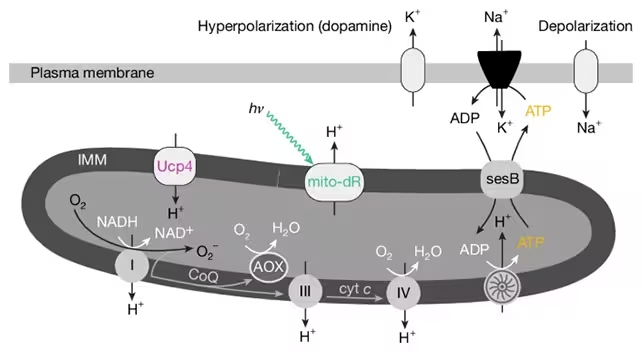4 Minutes
The Cellular Origins of Sleepiness: Unveiling the Role of Mitochondria
Every individual has experienced the overwhelming sensation of sleepiness after a night of insufficient rest—struggling to stay awake and focus. While the critical nature of sleep is universally acknowledged, the precise cellular mechanism that compels us to sleep has long eluded scientists. Recent research conducted at the University of Oxford sheds new light on this fundamental biological process, suggesting that mitochondria—the energy-producing structures within our cells—may play a central role in signaling the need for sleep.
Background: Why Do We Need Sleep?
For decades, scientists have investigated sleep's vital purpose, from memory consolidation to brain maintenance and detoxification. However, the direct trigger at the cellular level has remained a mystery. In pursuit of this answer, the Oxford research team, led by physiologist Prof. Gero Miesenböck, focused on fruit flies (Drosophila melanogaster), organisms whose sleep-regulating neurons share fundamental similarities with those of humans.
"Our goal was to uncover what sleep is for and why it feels imperative," explains Miesenböck. "Although sleep's benefits have been explored extensively, a definitive physical cause for feeling sleepy had yet to be pinpointed."
The Experiment: Fruit Flies Illuminate Sleep’s Cellular Mechanism
The research team designed experiments comparing well-rested and sleep-deprived fruit flies, analyzing both gene expression and electrical activity within the neural circuits responsible for sleep regulation. A clear pattern emerged: sleep deprivation led to mitochondrial overload in these neurons.
How Mitochondria Signal Sleep Need
Mitochondria function as cellular power plants by converting oxygen and nutrients into adenosine triphosphate (ATP), the body’s energy currency—a process known as aerobic metabolism. During periods of intense activity or sleep loss, mitochondria in sleep-regulating neurons begin shedding surplus electrons. This leakage generates reactive molecules known as free radicals or reactive oxygen species (ROS), which can damage cells if not neutralized. The accumulation of these molecules acts as a stress signal, prompting neurons to intensify sleep drive and prioritize restorative rest.
Neuroscientist Dr. Raffaele Sarnataro, a co-author of the study, explains: "You don’t want your mitochondria leaking too many electrons. When this happens, damaging compounds are produced, putting neurons—and ultimately the whole brain—under stress."

Manipulating Mitochondrial Activity Alters Sleep Patterns
To probe this mechanism further, scientists genetically modified fruit flies to alter the rate of electron leakage in their sleep-controlling neurons. Flies engineered with heightened electron production not only generated more waste molecules but also required significantly more sleep. Conversely, reducing electron production resulted in flies that slept less. These results strongly confirm the link between mitochondrial stress signals and the brain’s need for sleep.
Implications for Sleep Science and Health
Understanding the mitochondrial basis of sleep urges holds broad scientific and medical significance. Maintaining healthy mitochondrial metabolism may help prevent not only sleep disturbances but also neurodegenerative diseases such as Alzheimer’s, which are closely associated with both mitochondrial dysfunction and disrupted sleep cycles.
Furthermore, the study provides insight into broader biological trends: smaller animals with faster metabolisms often require more sleep and have shorter lifespans, potentially due to the cumulative impact of metabolic stress and repair demands on their neural circuits.
"This research helps answer a deep question in biology—why do we need sleep? The answer seems tied directly to how cells convert oxygen into energy," concludes Dr. Sarnataro.
Conclusion
The Oxford team's findings mark a significant step forward in unraveling the mysteries behind why sleep is non-negotiable for brain health. By linking our need for rest to mitochondrial metabolic overload, the research highlights a cellular process at the very heart of sleep biology. As studies continue, this new understanding could pave the way for innovative treatments targeting sleep disorders, neurodegenerative conditions, and perhaps even strategies for enhancing overall cellular health and longevity.
Source: nature



Comments